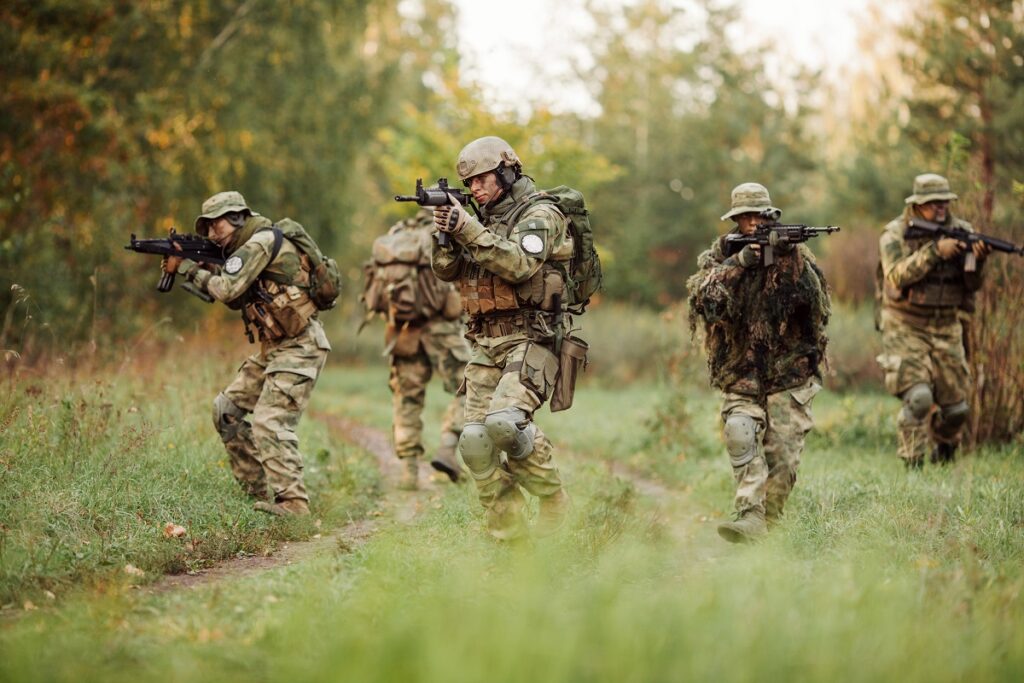Look through any HR article at this time of year and you will probably be treated to predictions – all the issues facing organisations standing in the foothills of 2015 as they set out to scale this year’s personnel challenges.
The old favourites get a mention of course – staff must be trained and developed, leaders must have vision and motivate the workforce, you know the kind of thing. But one of the emerging blips on the HR radar is the need to find fresh ways of engaging with employees who are now more savvy and more demanding than ever and who expect a more mutually-beneficial deal with their employers. Offering a free gym, or tickets to the theatre just won’t cut it any more.
As a businessman and qualified lawyer myself, I feel I should share with my fellow captains of industry and enterprise something a little less mundane. Have you thought about the benefits of Reserve military service to your employees and your organisations? OK, as the Deputy Commander Land Forces (Reserves) I have a very clear interest, but I offer it because I believe it could be good for you, your employees and your bottom line.
Today, talented people cherish the idea of working for companies that understand their need to have a life. And that doesn’t just mean being given more time off.
From a personal point of view, I am proud to say that I have served as a reservist for 26 years. From joining the Parachute Regiment as a Private soldier in 1987 to today, being a 2* General and the Army’s senior Reservist. It has been an incredibly rewarding and enriching experience. I have been to many interesting countries, learnt unique skills and made lifelong friends.
Let’s look at the hard commercial case. Here are some basic facts. The training that reservists get is just one of the areas employers can tap into, saving thousands on training budgets. Skills training can be one of the biggest expenses that companies and organisations face but as part of a successful career in the reserves, your staff will develop their leadership, problem-solving and team working skills, all of which they bring back into their day jobs.
Frankly without this experience I wouldn’t be the person I am today. But this isn’t about me. It’s about your organisation and your people.
An employer would have to budget for more than £8,000 on equivalent commercially available civilian training to provide the same amount of development that an average reservist can gain in just one year of spare-time Reserve military service. It’s not just personal character development, it’s also qualifications in areas such as health and safety, logistics, first aid and IT.
Specialist training can boost this even further. For example a Royal Logistics Corps Army Reserve Officer can gain a level 5 certificate in management, developing strong skills in problem solving, analytics, working in stressful environments and planning. According to the Charted Management Institute this training is equivalent to £22,000 worth of civilian training. While those in the education sector can benefit from additional training in delivering skills and theory based training using engaging and effective techniques to improve classroom management and to better motivate students. This additional training can be worth up to £2,400.
For qualified healthcare professionals like doctors, nurses and paramedics, world-class training in niche areas of medicine can be developed, such as aviation and severe trauma, saving training budgets of around £9,000 for nurses and paramedics alone. Reserve service also gives healthcare professionals experience of organising and managing a multi-disciplinary team, often in remote and austere conditions with the minimum of supervision and resources. Great preparation I am sure you’ll agree for any stretched hospital or A&E department.
I would argue that, whatever your business, having people with a can-do attitude on your workforce who are team players, keen to take responsibility and who don’t shrink at a challenge can only be of benefit.
But if you need more convincing, the benefits of employing and supporting a Reservist employee have been widely recognised by some of the leading employers in the country. BT alone employs over 200 Reservists. In fact they employ up to two-thirds of the personnel employed in a specialist Reserve communications unit (81 Signals Squadron) that supports our Armed Forces across the globe. BT gets personnel with cutting-edge skills who are used to working in diverse and challenging environments, while in return BT provides their Reservist employees with additional paid leave for military training throughout the year.
The CEO of BT Openreach Joe Garner is clear: “BT has a long tradition of supporting Britain’s Armed Forces, including hiring around 2,000 veterans into Openreach in recent years. We also believe that supporting Reservists brings benefits to both us as employer, the individuals concerned and the wider society. The transfer of skills, knowledge and professional development is a win. We are proud to help these courageous people have the opportunity to connect and protect Britain.”
A hardworking nurse, 25-year old Corporal Katie Pritchard, like many other Reservist medics, didn’t think twice when the call came to help out healthcare workers who had contracted the Ebola virus in Sierra Leone. Willingly sacrificing a Christmas at home she volunteered immediately to go.
“Once we had the specific training we all just wanted to get out there and get on with it,” she said. “I volunteered because although I know it’s going to be tough, you don’t get opportunities like this in ordinary life. And it’s a fantastic opportunity to get nursing experience that others in my hospital won’t have had.”
In the coming years even more Reserves will work among us, in companies of all sizes and shapes. My challenge to you and your company is simple; increase your support to the Reserves who contribute so much to our economy and our society through their civilian and military service.
So, I would urge you, if you have employees who are keen to develop themselves, find a sense of purpose outside work or simply seek to enjoy the same kind of camaraderie that I have over the last three decades, then encourage them to go to the Army website and search “armyjobs”. Why not have a look yourself?
You may be surprised by what you find there and what the Reserves can do for you.








